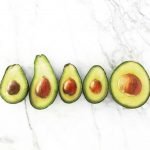Say Goodbye
to ED...
Become a member of our eating disorder (ED) recovery community.
Membership Benefits:
- Receive regular tips and tricks on how to thrive in recovery
- Get access to virtual help groups
- Stay up-to-date with our growing community
- Be the first to receive exclusive content from my book
Get your free membership here.
Join an empowering eating disorder recovery community and say goodbye to ED!
You are not alone.
Anger Expression
Originally Written: August 5, 2006, Day 5 in Treatment #2 We dove right into the discussion in Assertiveness and Anger Expression. The lead therapist stated…
Body Image Experiential
Originally Written: August 5, 2006, Day 5 in Treatment #2 Mornings are always the hardest for me. Breakfast went ok. I have a little anxiety…
Evening Wrap Up Day #4
Originally Written: August 4, 2006, Day 4 in Treatment #2 My stomach is killing me before dinner. I have a lot of anxiety. I am…
Body Image Group
Originally Written: August 4th, 2006, Day 4 in Treatment #2 I walked to body image group right after lunch. I feel ok about lunch. I…
Adult Processing
Originally Written: August 4, 2006, Day 4 in Treatment #2 If you succeed at your eating disorder, you will die. ED (a.k.a. eating disorder) is…
Therapy Session
Originally Written: August 4, 2006, Day 4 in Treatment #2 Day 4 has begun. I had my third therapy session with good old Cathy. We…
Evening Wrap Up Day #3
Originally Written: August 3, 2006, Day 3 in Treatment #2 Evening wrap up is a group reviewing the day. We each discuss our day, our…
Stress Management Group
Originally Written: August 3, 2006, Day 3 in Treatment #2 The group therapist started the discussion with a statement: Each one of us needs to…
Inspiration Celebration
Originally Written: August 3, 2006 and August 4, 2006, Day 3 and 4 in Treatment #2 Inspiration Celebration Inspiration Celebration was the next group on…
Evening Wrap Up of Day #2
Originally Written: August 2, 2006, Day 2 in Treatment #2 I feel uncomfortably full right now. Nothing in particular was a huge trigger food at…
Bulimic Eating Patterns
Originally Written: August 3, 2006, Day 3 in Treatment #2 Today after breakfast group sessions begin with the group called bulimic eating patterns. The lead…
Safety and Containment
Originally Written: August 3, 2006, Day 3 in Treatment #2 Safety and Containment is a group for sexual, emotional, and verbal abuse. I have encountered…
Stuck In My Head
Originally Written: August 2, 2006, Day 2 in Treatment #2 I didn’t pay attention to group therapy. I was trapped in my own head. My…
Emotion Regulation Group
Originally Written: August 2, 2006, Day 2 in Treatment #2 I went to “Emotion Regulation” at 9:15 am. We talked about support and the importance…
Body Image Group
Originally Written: August 1, 2006, Day 1 in Treatment #2 I went to “Body Image” at 5 pm. The therapist began the group with the…
Meeting My Therapist
Originally Written: August 1, 2006, Day 1 in Treatment #2 Meeting Cathy After eating lunch and after meal, I met with my therapist for the…
After Meal Group
Originally Written: August 1, 2006, Day 1 in Treatment #2 After meal is a support group in treatment in which everyone talks about how they…
First Day in Treatment #2
Originally Written: August 1, 2006, Day 1 in Treatment #2 Day 1 – second time in Treatment Laying in bed, I can’t help but think…
I Have an Eating Disorder...Now What?
Excerpt from Book: I grabbed a box of Special K cereal, a gallon of skim milk, and a bag of carrots from the fridge I…
Who is ED?
Who is “ED” and why doesn’t he want me to choose recovery? ED is an acronym for eating disorder and became popularized by the book…
What is 'Recovery'?
What is “Recovery” from an eating disorder? So what exactly is “Recovery” and what does it look like? This is the question that I have…
Overcoming Obstacles in Eating Disorder Recovery
One of the biggest challenges one faces throughout their eating disorder recovery journey is what I like to call “the usual suspects.” While challenges in…
Eating Disorder Recovery
recovery is a process, not an event. It’s important to remember that recovery is a process, not an event. This was a hard pill for…
Myths and Facts About Eating Disorders
There are so many misconceptions about eating disorders. These myths make it difficult for individuals struggling with eating disorders to seek help. These myths can…
A Daily Meditation Practice
I have had a love/hate relationship with meditation for the past few years. I truly wanted to add it into my daily routine because I…
Relapse Prevention Tips
Eating Disorder Relapse Prevention Tips: Identify what your triggers are and write them down. Share your trigger list with close friends and family to help…
Holiday Trigger Tools
Nikki Ostrower, Founder of Nao Wellness, and I started an eating disorder support group in December of 2017. We wanted to give back to others…
Eating Disorder Recovery & Self Worth
How do eating disorder recovery and self-worth go together and why is this important? There are many definitions of “self worth” out there so I…
Applying Eating Disorder Coping Tools
Iʼm sure you are accustomed to hearing about “coping tools” that, while they are essential for a healthy eating disorder recovery, you may also be…
Cleanse Your Space
It’s the beginning of 2018. It’s the perfect time to organize and detox your space. It’s important to reenergize your space on a regular basis…
A Daily Meditation Practice
I have had a love/hate relationship with meditation for the past few years. I truly wanted to add it into my daily routine because I…
Learn to Become a Mindful Listener
Being present and focused helps create everyday happiness in my life. It has helped me throughout my eating disorder recovery. We can build daily happiness…
About me

I am here to share my eating disorder recovery journey. I created this website to create a community for eating disorder recovery and share my journey throughout the years to help others navigate the unknown waters of recovery.







































